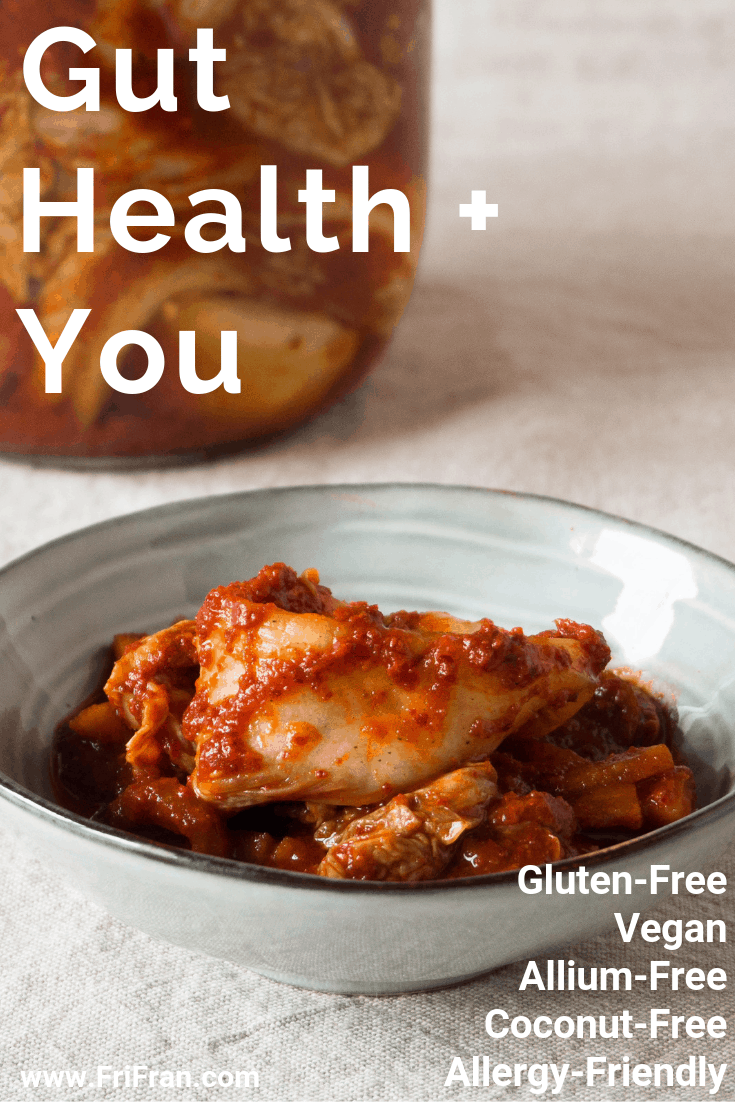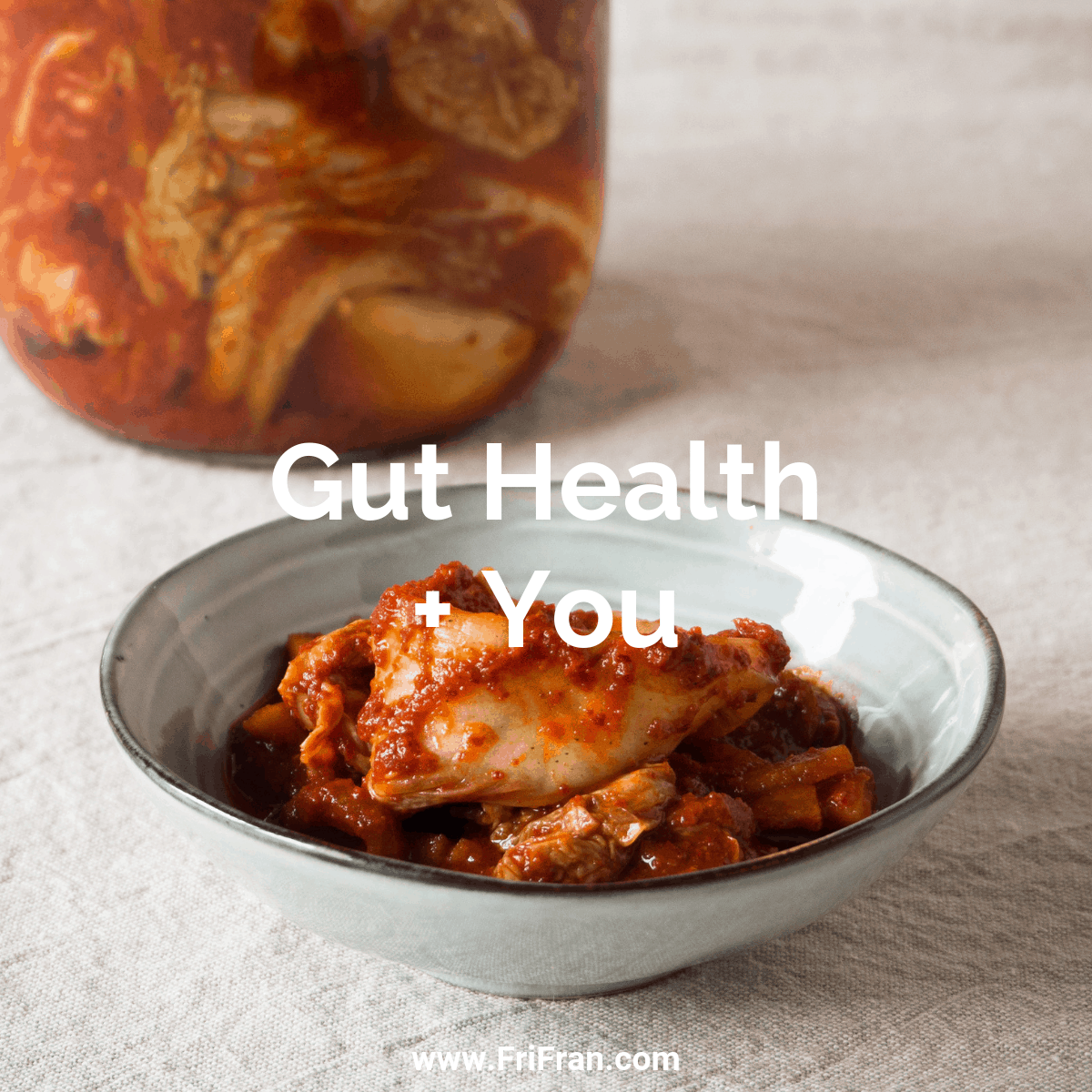
Gut health is very important and with more research, more links are found between gut health and our wider health. I’ve had gut problems for many years and have tried all sorts of medically monitored diets and treatments. My gut health has improved dramatically but it’s far from ‘normal’. Here in Gut Health: Pre-Biotics, Pro-Biotics and You I help you navigate your own gut health.
Gut Health: Microflora, Pre-Biotics, Pro-Biotics and You
So, we Just Need To Eat Lots Of Foods Rich In Pre and Pro-Biotics. Right???
Noooo. Not quite. Before you start wolfing down vegan kefir, sauerkraut and yogurt there are a few things you need to be aware of.
Gut Flora
Your gut is full of bacteria, flora and all sort of things you can’t begin to imagine. Yes, your gut is full of living things (mostly good things!), even though you have quite a bit of acid in your stomach (so you can digest food). And, all these useful little beauties survive, well, thrive in your gut!
Gut flora (AKA gut microbiota and gastrointestinal microbiota) is the complex community of microorganisms that live in our digestive tracts. Your gut flora is established between the ages of one and two years old. The intestinal epithelium and the intestinal mucosal barrier that gut flora secretes co-develop in a way that is tolerant to, and supportive of, the gut flora. It also provides a barrier to pathogenic (bad!) organisms. Your gut flora has the largest numbers of bacteria and the greatest number of species compared to all other areas of the body.
The relationship between some gut flora and humans is not just a harmless coexistence but a mutually beneficial relationship. Some human gut microorganisms benefit you by fermenting dietary fibre into short-chain fatty acids, such as acetic acid and butyric acid, which are then absorbed by you. Intestinal bacteria also play a role in synthesising vitamin B and vitamin K as well as metabolising bile acids, sterols and xenobiotics. The systemic importance of the short-chain fatty acids and other compounds produced are like hormones and the gut flora itself appears to function like an endocrine organ. Dysregulation or disruption of the gut flora has been correlated with a number of inflammatory and autoimmune conditions.
The composition of your gut flora will change over time; when your diet changes, as you age, where you live and as overall health changes. Your gut flora health appears to be directly related to your overall health. It can be affected by poor diet, lack of physical activity, alcohol, smoking and stress.
There is a huge amount of ongoing, interesting research regarding the role of gut flora on every other part of your body from your immune system to your brain and the links to all sorts of diseases and malfunctions. If your gut flora is not happy all the pre and probiotics in the world will not make it better. They might actually cause you more problems.
Your Microbiome
My what? Bigger than gut flora or gut microbiota is your microbiome. The collection of microbes that live in and on the human body is known as the microbiota (that includes your gut microbiota). The microbiome refers to the complete set of genes within these microbes. Microbial genes significantly influence how the body operates and outnumbers human genes by a ratio of 100:1. Each of us has a unique microbiota and a unique microbiome. The microbes that live in your body are determined by what you’re exposed to and these colonies are constantly in flux. Geography, health, stress, diet, age, gender, and everything you touch all affect the composition of your microbiota.
Everyone of us is a mass of interconnected, symbiotic bacteria, flora, viruses and more. The BBC has an interesting health series called The Second Genome – all about the magnificent ecosystem that is your body: ‘if you count all the cells in your body, only 43% are human‘. Find out more here.
Your gut health is really important, not just for you to be able to metabolise food but to be healthy. And, for your gut to be healthy, you have to be healthy. A little bit chicken and egg. What happens if your gut flora isn’t in great shape?
What are Prebiotics?
Prebiotics are foods or dietary supplements that induce the growth or activity of beneficial microorganisms such as bacteria and fungi.
You can buy dietary prebiotics. These are usually non-digestible fibre compounds that pass undigested through the upper part of the gastrointestinal tract and stimulate the growth or activity of advantageous bacteria that colonise the large bowel by acting as substrate for them.
Many prebiotics foods are also high FODMAP foods. If you have issues which are affected by FODMAP foods you should avoid these. (Many of the below cause significant problems for me and a fabulous dietitian I was referred to very usefully pointed me to probiotics as a first step).
Prebioitic foods include
- Raw Chicory Root
- Raw Jerusalem Artichoke
- Raw Dandelion Greens
- Raw Garlic (high Fodmap)
- Raw Leeks (high Fodmap)
- Raw Onion (high Fodmap)
- Cooked Onions (high Fodmap)
- Raw Asparagus
- Raw Banana
Cooking foods affects their prebiotic efficacy. There is limited research but around five grams of prebiotic foods a day is recommended.
What Are Probiotics?
Probiotics are microorganisms that are believed to provide health benefits when consumed. They can be found in food or dietary supplements.
There are numerous claimed benefits of using commercial probiotics, such as reducing gastrointestinal discomfort, improving immune health, relieving constipation, or avoiding the common cold. There is limited scientific evidence to support the efficacy of probiotics. They are however, often recommended by doctors and dietitians.
Probiotics are considered generally safe, but may cause bacteria-host interactions and unwanted side effects in rare cases.
For probiotic food to be effective you need to have a good environment for them to thrive (the substrata such as that aided by prebioitcs) and a healthy gut flora.
Probiotic foods tend to be fermented foods and include
- Live, plant based yogurt
- Sauerkraut
- Kimchi
- Miso and miso products (e.g. soup)
- Plant based kefir (fermented yogurt)
- Fermented pickles
- Tempeh
However, fermented foods also have the potential to cause problems for many people; especially those who need to avoid high FODMAP foods.
What are Synbiotics?
Synbiotics are food ingredients or dietary supplements combining probiotics and prebiotics in a form of synergism. Natural synbiotics would include a pairing from the prebiotic and probiotic list e.g. live plant-based yogurt with mashed banana.
You can also get over the counter synbiotics. Their efficacy is still to be firmly established however, Alflorex was recommended to me and I have taken it several times and noted benefits from it (though it costs around £25 for a months supply).
I Think My Gut Health is Poor What Do I Do?
Cutting through all of the above there are simple steps you can take to improve your gut health.
- Eat a balanced, healthy, diet
- Exercise
- Reduce stress
- Do not smoke
- Do not drink alcohol
- Consume varied prebiotics regularly in small quantities (if you an tolerate them)
- Consume varied probiotics regularly in small quantities
- Consider over the counter synbiotics if you are struggling with the above to kick-start your ‘good gut’.
If you have any concerns about your health you should seek medical help.
Are You Concerned About Your Symptoms
If your health is causing you concern and you think something you are eating is causing you problems or are concerned about you gut health you may be able narrow your down (or rule out) any link between what you are eating and your symptoms by keeping a food diary. A food diary will help you monitor your food intake and any symptoms over several weeks/ months. This is a really useful item to take with you to a medical appointment.
Gut Health: Pre-Biotics, Pro-Biotics and You – Fabulous Probiotic Recipes
Amongst my all time favourite things are fermented food. I LOVE fermented foods. The Art of Fermentation* by Sandor Ellix Katz is a wonderful book packed full of knowledge, passion and information (but not recipes as we know them). This book is my inspiration to try out different methods of preserving on the world of fruits and vegetables.
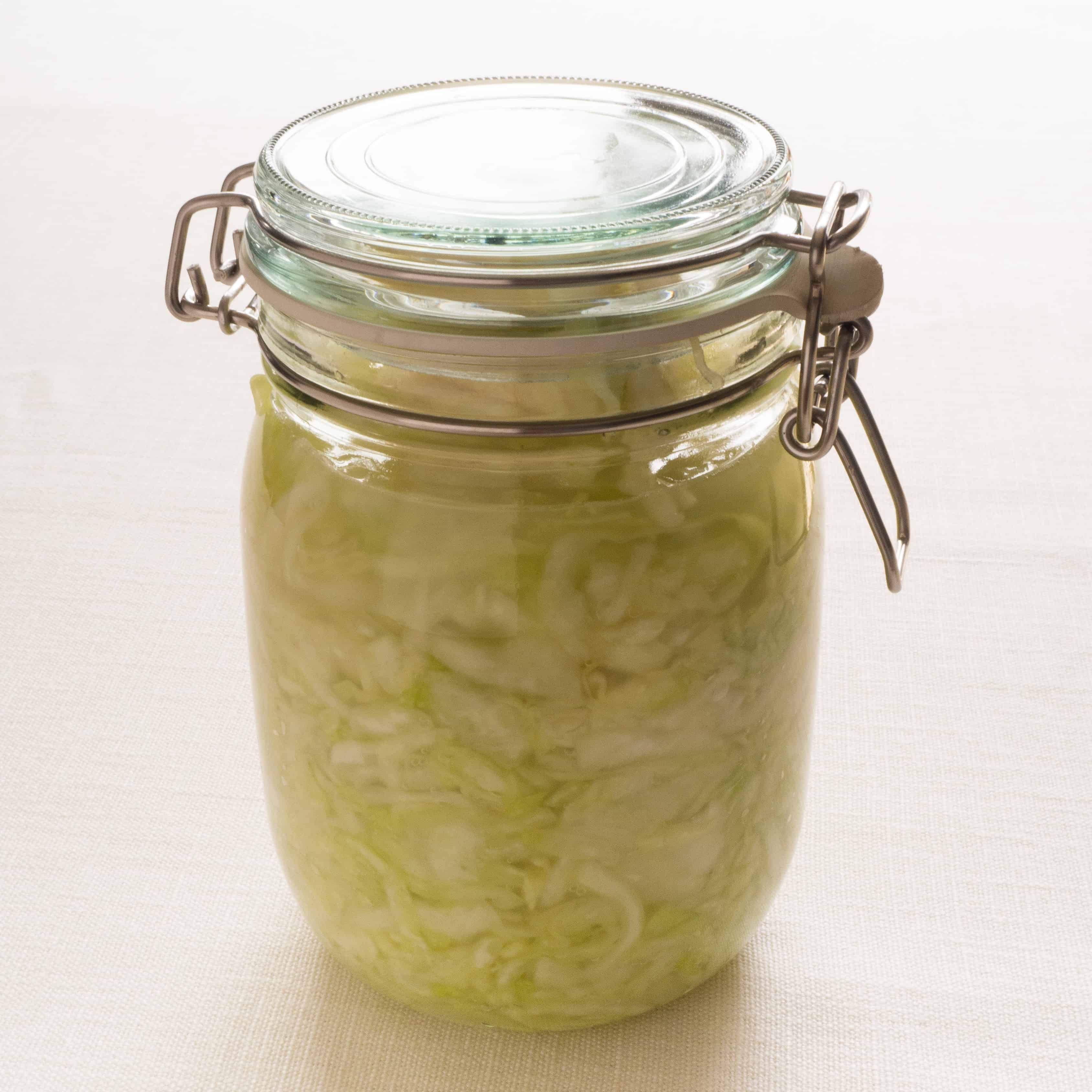
I avoid onions, leeks garlic (alliums) and so I use Sauerkraut in place of them in cooking. I make HUGE batches of Sauerkraut and use it in place of chopped onions and/ or garlic when making stir-fries. It works really, really well.
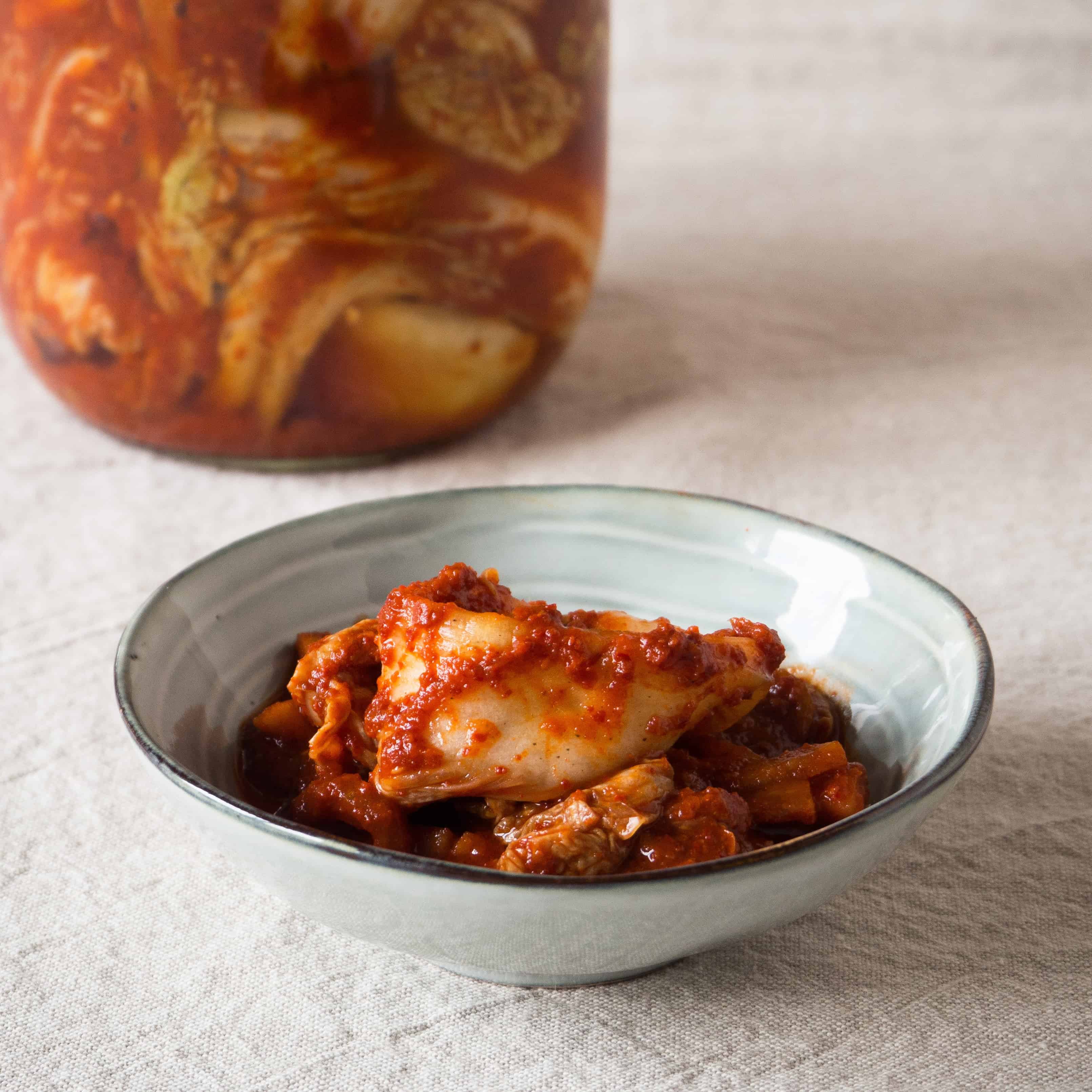
Sticking with home-fermented goodies I am also crazy about Gluten-Free, Vegan Kimchi. Again, I make huge batches of this. I eat this with almost any tofu and/ or rice dish. I need no excuse but I try not to eat my batches too quickly!
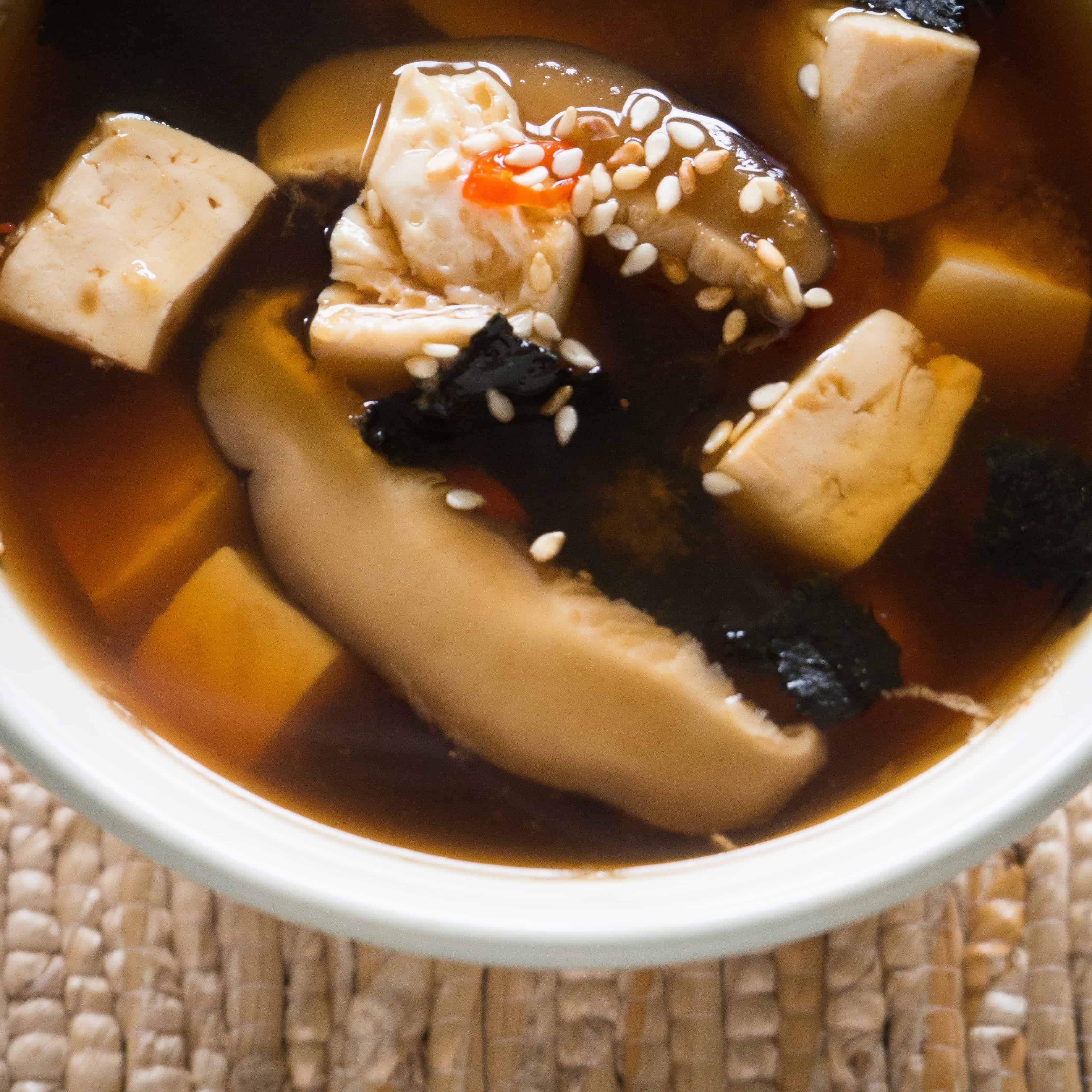
Miso soup is another favourite of mine. I buy gluten-free (look out for barley), vegan miso paste. I have white rice and brown rice miso paste in the cupboard at the moment. I use these to make a wide variety of dishes including Miso Soup with Tofu and Shitake Mushrooms. A really fab light lunch.
Gut Health: Pre-Biotics, Pro-Biotics and You – What Are Your Favourite Ways Consume Pre and Pro-Biotics?
There are bound to be lots more amazing recipes rich in pre and pro-biotics – this is my tiny, tiny selection of ideas.
What are your Top Tips For Gut Health In Your Gluten-Free, Vegan Kitchen? Drop a comment below or ping me on social media! 🙂
